
Larisa Shepitko
Birth : 1938-01-06, Artyomovsk, Ukrainian SSR, USSR [now Artemivsk, Donetsk Oblast, Ukraine]
Death : 1979-07-02
History
From Wikipedia, the free encyclopedia.
Larysa Efimovna Shepitko (6 January 1938, Artemivsk, Ukrainian SSR – 2 June 1979, Kalinin Oblast) was a Ukrainian Soviet film director. She went to the All-Union State Institute of Cinematography in Moscow as a student of Olexander Dovzhenko. She was a student of Dovzhenko's for 18 months until he died in 1956. Shepitko graduated from VGIK in 1963 with her prize winning diploma film Heat, made when she was 22 years old. It tells the story of a new farming community in Central Asia during the mid 1950s.
Shepitko's next film Wings concerns a much-decorated female fighter pilot of World War II. The pilot, now principal of a vocational college, is out of touch with her daughter and the new generation. The film aroused considerable Soviet press controversy at the time, as films were not meant to depict conflicts between children and parents (Vronskaya, 1972 p 39).
Shepitko's third film was You and I (1971). This was her only film in colour. It was favourably received at the Venice Film Festival, but lacked proper public exposure in the Soviet Union.
The Ascent (1976) was her last film and the one which garnered the most attention in the West. In it, Shepitko returns to the sufferings of World War II, chronicling the trials and tribulations of a group of partisans in Belarus in the bleak winter of 1942. Two of the partisans are captured by the Nazis and then interrogated by a local collaborator, played by Anatoly Solonitsyn, before one of them is executed in public. This depiction of the martyrdom of the Russians owes much to Christian iconography. The Ascent won the Golden Bear at the 27th Berlin International Film Festival in 1977.
Shepitko's growing international reputation led to an invitation to serve on the jury at the 28th Berlin International Film Festival in 1978. However, she was unable to complete any other films. Shepitko died in a car crash with four members of her shooting team in 1979 while scouting locations for her planned adaptation of the novel Farewell to Matyora, by Valentin Rasputin. Her husband Elem Klimov, also a film director, finished the work for her.
Description above from the Wikipedia article Larisa Shepitko, licensed under CC-BY-SA, full list of contributors on Wikipedia.

This 1999 program, broadcast on the Russian television channel Kultura, features an introduction by filmmaker Elem Klimov and film critic Irina Rubanova to an interview with director Larisa Shepitko that was recorded just after the 1978 Berlin International Film Festival.
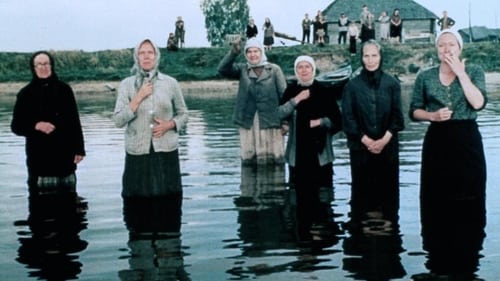
Writer
Matyora is a small village on a beautiful island with the same name. The existence of the village is threatened with flooding by the construction of a dam. This is the story of the inhabitants of Matyora and their farewell to their homeland.

Russian monk Grigori Rasputin rises to power, which corrupts him along the way. His sexual perversions and madness ultimatly leads to his gruesome assasination.
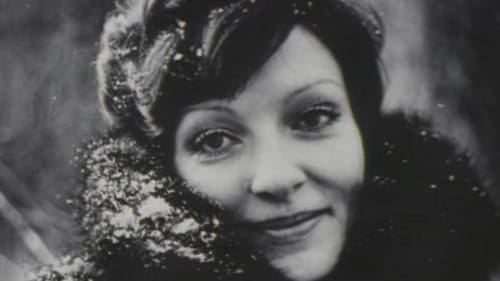
Self (archive footage)
Elem Klimov's documentary ode to his wife, director Larisa Shepitko, who was killed in an auto wreck.

Writer
Two Soviet partisans leave their starving band to get supplies from a nearby farm. The Germans have reached the farm first, so the pair must go on a journey deep into occupied territory, a voyage that will also take them deep into their souls.

Director
Two Soviet partisans leave their starving band to get supplies from a nearby farm. The Germans have reached the farm first, so the pair must go on a journey deep into occupied territory, a voyage that will also take them deep into their souls.

Writer
Two young talented neurosurgeons — Pyotr and Sasha — are enthusiastically working on a complex medical experiment. But in search of stability and a better life, Pyotr goes to work in Stockholm, Sasha becomes a major official. Pyotrr's overseas life does not add up, and he returns to Moscow. Realizing that his friend has a completely different life, Pyotr goes to Siberia, where he works on an ambulance. There he meets a girl with a brain disease, the study of which he had once been involved in, but did not finish the job. Feeling in vain of a lived, failed life, a sense of professional guilt in front of this sick girl, whom no one can help, torment him, and he again recalls his true destiny.

Director
Two young talented neurosurgeons — Pyotr and Sasha — are enthusiastically working on a complex medical experiment. But in search of stability and a better life, Pyotr goes to work in Stockholm, Sasha becomes a major official. Pyotrr's overseas life does not add up, and he returns to Moscow. Realizing that his friend has a completely different life, Pyotr goes to Siberia, where he works on an ambulance. There he meets a girl with a brain disease, the study of which he had once been involved in, but did not finish the job. Feeling in vain of a lived, failed life, a sense of professional guilt in front of this sick girl, whom no one can help, torment him, and he again recalls his true destiny.
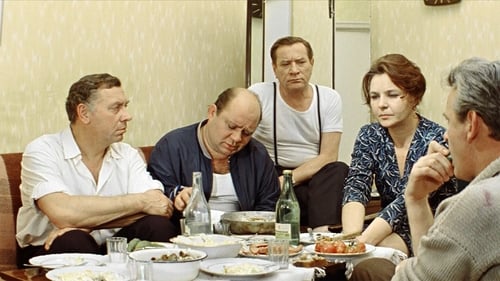
Original Concept
The heroes of the movie last seen each other on the Belarusian railway station in the summer of 1945. A quarter-century, they meet at the funeral of comrade.

A half-fiction half-documentary story about sport and it's importance in everyday life.

Director
Various dwellers of the Russian forest: Leshiy (forest goblin), Vodyanoy (water spirit), Ovinni (barn spirit) Domovoy (house spirit), Anchutka (gremlin) and Rusalka (mermaid) meet at Baba Yaga's chicken-legged hut and receive an esteemed guest who appears from nowhere. They gather around one table to say goodbye to the old year and welcome the new, that is until the guest grows bored with their antics and seeks fun elsewhere.
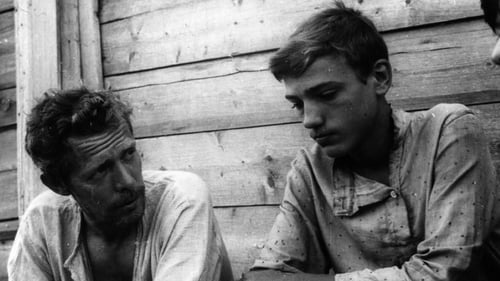
Screenplay
Two young directors adapted the short stories of two Russian authors whose works had been banned for decades, and so their film ended up in the censor’s vault as well – for twenty years. Both tales look back to the post-revolutionary era: 'Angel' speaks tragically of the brutality and destruction of the time, and 'The Homeland of Electricity' captures its haunting grotesquery.

Director
Two young directors adapted the short stories of two Russian authors whose works had been banned for decades, and so their film ended up in the censor’s vault as well – for twenty years. Both tales look back to the post-revolutionary era: 'Angel' speaks tragically of the brutality and destruction of the time, and 'The Homeland of Electricity' captures its haunting grotesquery.

Screenplay
The Homeland of Electricity, Larisa Shepitko's adaptation of an Andrei Platonov story, was one of three short films collected in an omnibus work (Beginning of an Unknown Era) commissioned to honor the 50th Anniversary of the October Revolution. Censors eventually shelved the film and it would not see the light of day until well after Shepitko's death, during Mikhail Gorbachev's perestroika.

Director
The Homeland of Electricity, Larisa Shepitko's adaptation of an Andrei Platonov story, was one of three short films collected in an omnibus work (Beginning of an Unknown Era) commissioned to honor the 50th Anniversary of the October Revolution. Censors eventually shelved the film and it would not see the light of day until well after Shepitko's death, during Mikhail Gorbachev's perestroika.
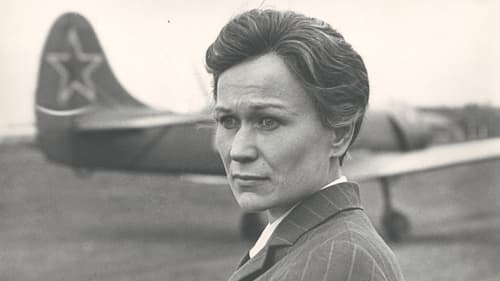
Director
The war ended a long time ago, but for the heroine of the film, the former pilot, only those years were filled with genuine meaning. She deeply feels discord with reality, lack of contact with her daughter. She doesn't manage to adapt to this peaceful, everyday life, she doesn't lose her piercing desire to fly...

Screenplay
An idealistic high school graduate goes to work on a state farm on the Kazakh steppe, only to clash with its authoritarian leader.

Director
An idealistic high school graduate goes to work on a state farm on the Kazakh steppe, only to clash with its authoritarian leader.

Hanna
1914, Imperial Russia. A group of Ukrainian peasants searching for a better life in the Taurida steppe end up working at the landholding of the aristocratic Falz-Fein family. Friends Vustya and Hanna are courted by a revolutionary and the landowner's son, both rising their hopes and dreams.

A Soviet dam project means that many old Ukrainian villages will end up under water. There are conflicts between the dam engineers and villagers who don't want to move.

Director
The second graduation work from Larisa Shepitko.
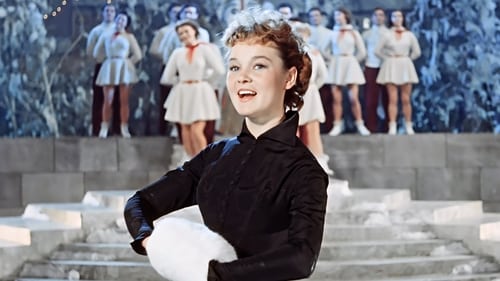
guest
It is the New Year's Eve and the employees of an Economics Institute are ready with their annual New Year's entertainment program. It includes a lot of dancing and singing, jazz band performance and even magic tricks. Suddenly, an announcement is made that a new director has been elected and that he is arriving shortly. Comrade Ogurtsov arrives in time to review and disapprove of the scheduled entertainment. To him, holiday fun has a different meaning. He imagines speakers reading annual reports to show the Institute's progress over the year, and, perhaps, a bit of serious music, something from the Classics, played by the Veterans' Orchestra. Obviously, no one wants to change the program a few hours before the show, much less to replace it with something so boring! Now everyone has to team up in order to prevent Ogurtsov from getting to the stage. As some of them trap Ogurtsov one way or another, others perform their scheduled pieces and celebrate New Year's Eve.

Director
The first graduation work from Larisa Shepitko.













